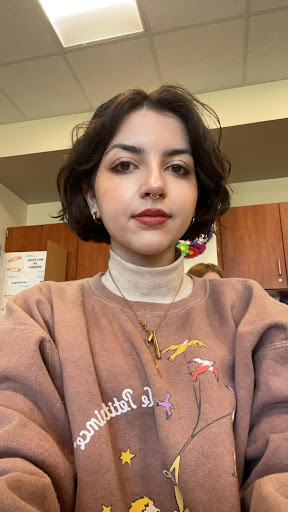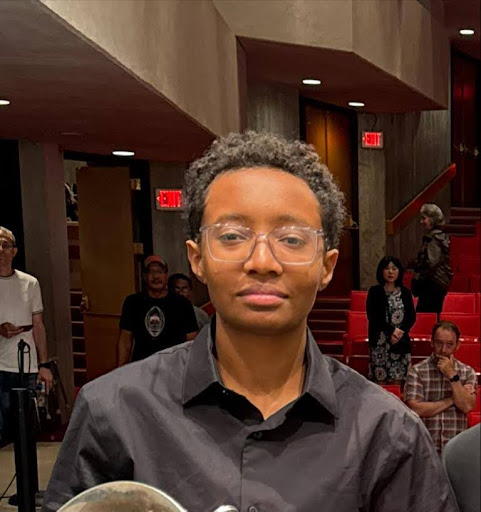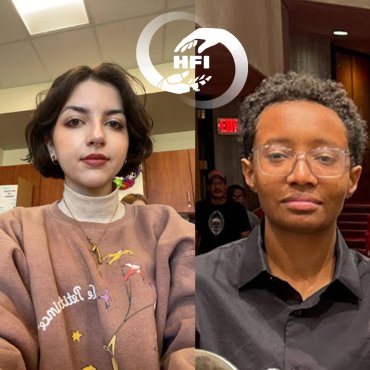Two Cleveland area rising seniors, Olivia Bruening from Cleveland Heights High School and Austin Fritzgerald from Hawken School, are spending their summer conducting research at the Human Fusions Institute.
Bruening, who has previously taken anatomy classes at her high school, is now immersing herself in research at the HFI Director Dustin Tyler’s lab as part of Case Western Reserve University’s Research Immersion in Brain, Spinal Cord (RIBS), & Peripheral Nerves program for high school students.

Bruening’s passion for the medical field has always been a driving force. Her work with Ph.D. student Margaux Randolph in Tyler’s lab, where she segments micro CTs of implanted peripheral nerves, has been a source of immense pride. She is particularly excited about creating a poster and research paper to showcase her learnings at CWRU.
“While I have always been interested in STEM, I never realized how important and interesting engineering could be until now,” said Bruening, whose interest in biomedical engineering has grown since she started her internship at CWRU. “I am quite excited to gain new knowledge and see how my work might make a long-term difference. Having first-hand work experience will help give me great perspective and good job ideas.”
Fritzgerald’s interest in biomedical, electrical, and materials engineering took off after he attended ASM International’s Eisenman Materials Camp with other high school students worldwide. He worked with students from France, Taiwan, and India to perform a failure analysis on five broken sockets. “Getting familiar with processes such as scanning electron microscopy and heat treatment wasn’t easy, but seeing my team’s work identify the cause of failure at the end of the week was very rewarding,” he said.

After watching a YouTube video, Fritzgerald was captivated by HFI’s work with prosthetic limbs. As part of Hawken’s Scientific Research Program, he is eager to learn about crucial technical processes and critical thinking skills for successful research. “I have always loved learning, and there is no better way to learn about something than to work with it firsthand,” he said. “The technology behind prosthetics fascinates me, and I am eager to learn more about its new advancements. The sense of touch is something most people take for granted, so the opportunity to work towards restoring touch in those impacted by amputation was one I could not pass up.”
At CWRU, Fritzgerald will use new Saturn II technology in prosthetic limbs to allow more advanced electrical stimulation. He primarily works with Ph.D. student Roberto Peralta of Assistant Professor Emily Graczyk’s lab.
When Fritzgerald is not in the lab, he enjoys kayaking, listening to music, and watching sports, especially basketball, football, baseball, and soccer. He is looking forward to the 2024 Summer Olympics.

